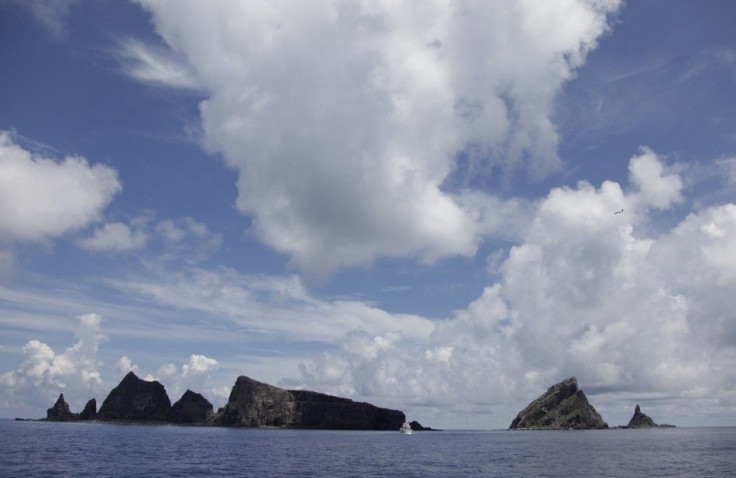Warning Shots May Be Used To Thwart Airspace Incursions Near Disputed Islands: Japan

Japanese officials have said warning shots would be fired at foreign aircrafts violating its airspace, after an incident last week saw Beijing and Tokyo scramble fighter planes over airspace incursions near a set of hotly contested islands in the East China Sea.
Officials in Tokyo made the comments, as reported by the Associated Press, following an incident last week when the Chinese government sent a civilian surveillance plane to fly near the disputed islands known as Senkaku in Japan and Diaoyu in China.
Tokyo, in response, ordered F-15 fighter jets to tail the Chinese surveillance plane, which prompted Beijing to then send their own J-10 fighters.
It was the first time that supersonic Chinese and Japanese military fighters were in the disputed airspace together since tensions flared over the islands last year.
Japanese Defense Minister Itsunori Onodera, when asked if tracer shots would be fired against intruding aircraft that refuse to change course, said Wednesday: "Every country has procedures for how to deal with a violation of its territory that continues after multiple cautionary measures. We have response measures ready that are consistent with global standards,” the Associated Press reported.
Tracer ammunition is designed to burn brightly, making the projectile visible to the naked eye, while also indicating that the aircraft firing them is prepared to take further action.
Onodera said the use of warning shots has long been provided for under Japan's defense policies and is widely accepted under international rules of engagement.
The last time Japan's air force has actually resorted to tracer shots was in 1987 — against a Soviet aircraft.
China’s Foreign Ministry spokesman Qin Gang Saturday called on Japan to have a “responsible attitude” in order to benefit the stability and development of Asia.
Qin made the remarks when commenting on Japanese Prime Minister Shinzo Abe's press conference on his country's policy toward the Association of Southeast Asian Nations (ASEAN) during his tour in Jakarta Friday, Xinhua news agency reported.
For the first time in 11 years, the new nationalist government in Japan headed by Shinzo Abe, decided to increase the defense budget for fiscal 2013 from the current fiscal year ending in March, according to a report in the Yomiuri Shimbun Jan. 9.
The budget appropriation request for defense spending is expected to be increased by more than 100 billion yen ($1.1 billion), part of which will be used for research on upgrading radar technology, according to officials.
Tensions between China and Japan escalated last Sept.11, when the Japanese government announced the signing of a contract worth 2.05 billion yen ($26 million) to buy three of the five disputed islands from their private owner. Since then Chinese patrol ships have frequented the waters around the islands.
The islands, which lie some 200km (124 miles) off Japan's Okinawa island and beyond China's 200 nautical mile (370km) exclusive economic zone, are surrounded by an area rich in fisheries and are believed to contain significant hydrocarbon resources.
© Copyright IBTimes 2025. All rights reserved.





















